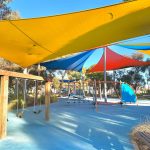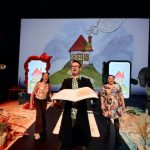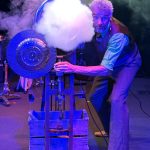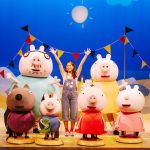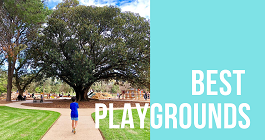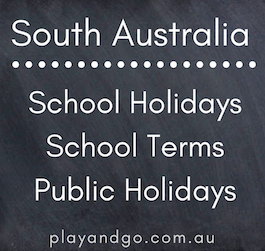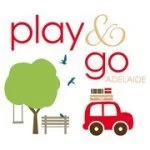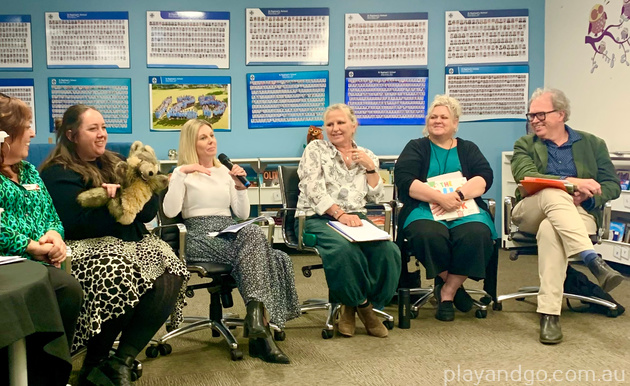
The importance of fostering a love of literacy among our children – including why and how to do it – was the focus at an enlightening and inspiring panel discussion held at St Raphael’s School in Parkside this week.
The expert panel featured renowned children’s authors, illustrators and literacy and library specialists and was held as part of the school’s groundbreaking Reading Revolution program, which aims to instil a love of reading in children to give them lifelong benefits that will help them thrive now and into the future.
WHY IS READING IMPORTANT?
Bec Hughes from Raising Literacy Australia said the “science was clear” as to why children’s brains need to be nurtured and exposed to language in infancy and the following years.
“Up to 85 per cent of a child’s brain grows within the first three years and up to 95 per cent in the first five years, so…we can grasp how important those early years are to allow them to flourish.”
In addition allowing parents to “ignite and form new connections with their child”, she reassured caregivers that reading their child’s favourite book over and over again was actually one of the best things they could do for their child’s development.
“Repetition is strengthening connections in the child’s brain…and activating the area in their brain that supports memory, learning and all the things that helps them learn to read and write.
“Those books you are reading on repeat are creating a love for reading that will last a lifetime and are building strong foundations for the brain.”
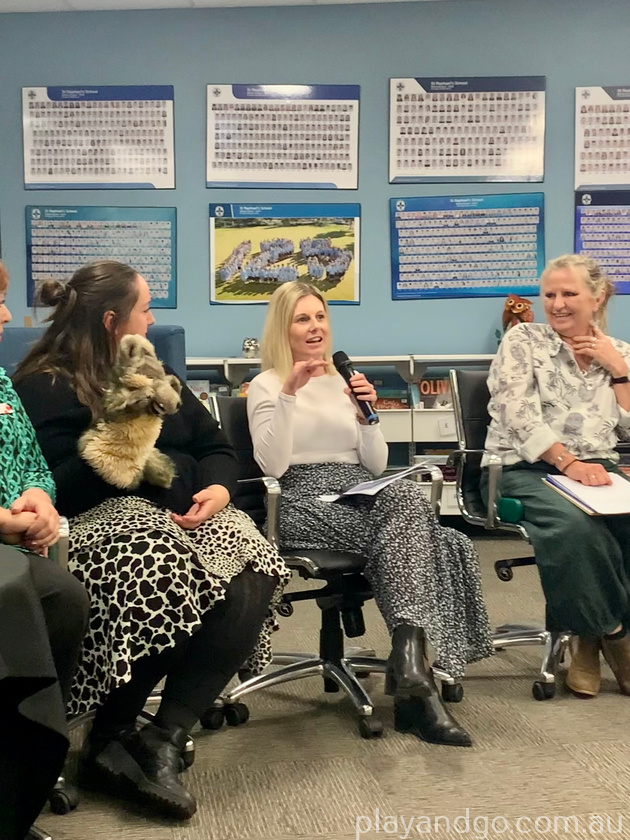
Bec Hughes from Raising Literacy Australia.
St Raphael’s principal and panel host Emma Fowler emphasised the importance of repetition in vocabulary building. Her daughter, as a young child, learned the word “delectable” by memorising her favourite book.
Children’s author and illustrator Mandy Foot echoed the importance of exposing babies to language early on – even while they are in the womb – and shared an anecdote about illustrating Old MacDonald Had a Farm while pregnant and singing the song while working. As an eight-month-old baby, the only way she could calm him down in the car was by singing that same song she had sung while pregnant.
Ms Foot also emphasised the importance of illustration in engaging children in literature.
“Kids to learn to read pictures before words…and some kids are better at connecting with others through images more so than words, but it all starts through fostering a love for reading through books.”
Tania Ingram, a children’s author with a background in child psychology, said many studies have demonstrated a link between strong literacy skills in children and higher levels of education, income and contentment in life as adults.
“It’s great to want children to be literate so they can have financial stability and contentment in life, but we need to look bigger,” she said.
“In order for kids to function in the world we have built for them, where everything is written or read and they text and email more than they speak to people, they need literacy for them to function.
“Can you imagine what the world will look like in the next 10 or 20 years and what it would be like if they don’t have literacy skills?”
In a world littered with distractions from social media, children’s author and illustrator Andrew Joyner said reading teaches children concentration skills.
“When we make a picture book…we really want to get the child to turn to the next page,” he said.
“As well as that feeling you get from turning the page and the sense of surprise…it teaches children how to follow an idea through in a sequence.”
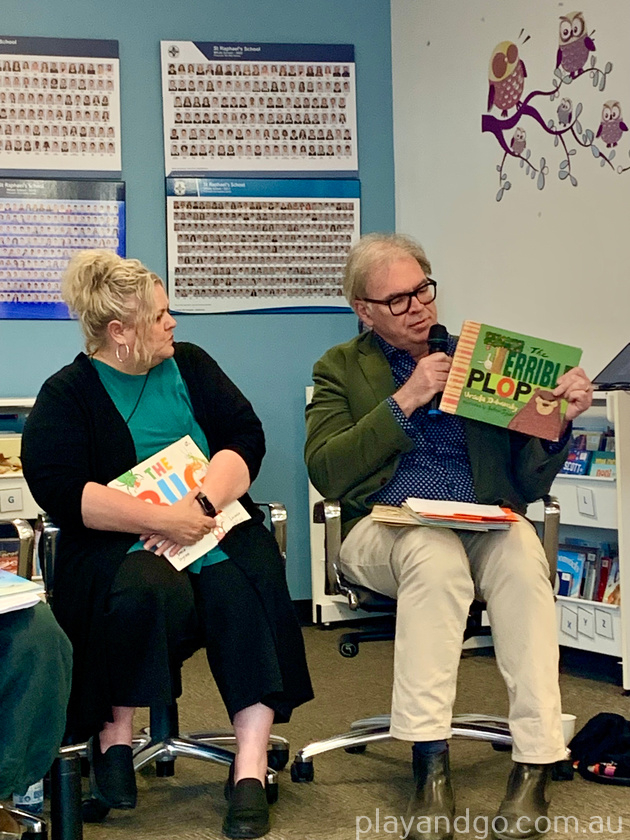
Children’s author and illustrator Andrew Joyner at the literacy panel discussion at St Raphaels School in Parkside.
Mr Joyner also explained the importance of books in promoting diversity and a view of the wider world, as well as a being a mirror to whatever a child, teenager or adult may be experiencing at that time in their life.
Ms Fowler said teenagers, for example, “often think they are the only person going through something, but through books they realise that someone else has also gone through it”.
She said reading is the healthy habit and hobby children need in our increasingly technological world, outside of screen time and social media.
“That love of literature is the greatest gift we can give our children as parents and teachers,” she said.
“We advocate for it so strongly here at St Raphaels, not only by making sure we read to and listen to the children reading every day…but also by equipping our families with insights, tips and things they can do at home.”
HOW TO FOSTER A LOVE OF READING
Use public libraries: There are millions of children’s resources available to borrow – from board books, picture books and easy readers to children’s fiction, children’s fantasy, graphic novels, younger teen fiction and older teen fiction – for free using your South Australian library card. Thanks to the OneCard network, you can borrow from and return to any library in the state, as well as access even more resources online.
At Unley Library, there are also youth and children’s programs, toy libraries coordinated by teachers, a knowledgable advisory service, literacy kits on topics such as parenting, toilet training, bilingual families, separation and divorce, and inclusive collections such as the autism spectrum, rainbow, multicultural and dyslexic collections.
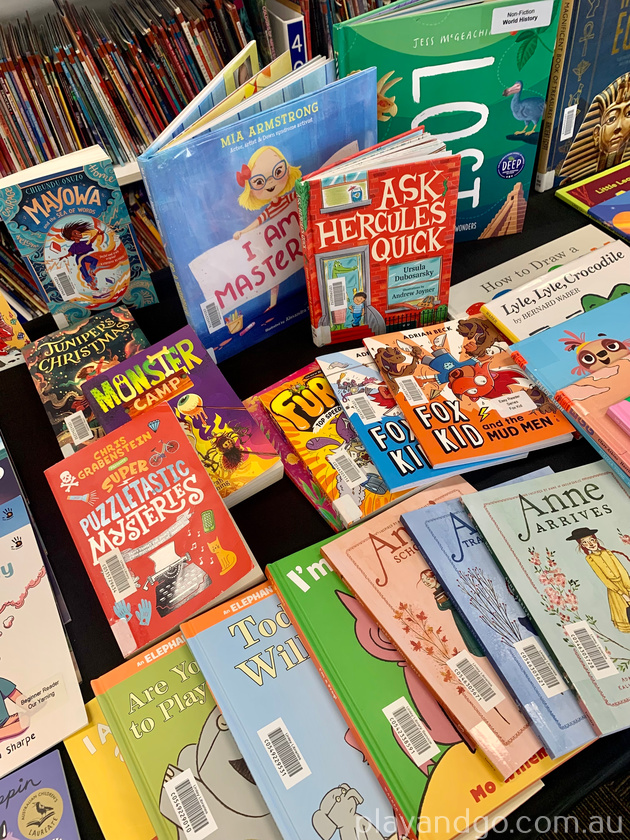
A selection of resources available from Unley Library
Talk a lot: Unley Library children’s coordinator Karyn Stephens said the quantity of language a child is exposed to is more important than the quality, according to a Canadian study. Her colleague Caitlin Hadrill encouraged parents to talk to their young child about the world around them. “Talk about how red the apples are or how many avocados you need. Yes, it could be boring to narrate life, but honestly it’s the best thing you can do to help your children.”
Regular reading time: Reading books at bedtime is a great way to wind down and establish bedtime routines, but sometimes the last thing you want to do at the end of the day is to read that lengthy book your child is insisting on. Fit reading time in during the day whenever you can: over breakfast, on public transport or while one child is waiting for a sibling at a sporting match.
Ms Foot said she still reads with her teenager as a way to connect.
“They look forward to that time because we’re all busy,” she said. “For them to sit down with us end of day …to have that time with you one on one and cement that bond with them, they love it.”
Mr Joyner said taking turns with your teenager to choose a book and read a chapter together each night was a great way to keep them reading.
“It might sound strange but it’s not when you’re in the moment and experiencing a story together with your child.”
Make reading fun: Follow Ms Ingram’s lead and turn reading into an extra special time, as she did with her daughter. Create a reading fort with blankets, sheets, pegs, fairy lights and a stack of books as a special surprise when your child wakes up.
Or, hold a ‘book party’ by borrowing a bunch of picture books, bring the mattresses and bedding into the living room, set up lights and after dinner, jump into bed together and read books.
“You can start that when they’re toddlers and keep going,” Ms Ingram said. “We did it until our daughter was 12 years old. It’s a great bonding experience and it got her to really love reading.”
Another idea is to get your kids in the kitchen. Ms Hadrill from Unley Library suggested borrowing a kids’ cookbook and asking your child to read out the ingredients or have them look at the pictures and ask what’s next. “There’s a lot of language in the kitchen with mixing, measuring and baking,” she said. “That level of literacy is excellent.”
Props, puppets, costumes and role plays are also a great way to bring books to life. Ms Fowler suggested borrowing items from Unley Library’s toy library. “You can borrow toys and resources from a library, return them and still have a rich learning experience with your little people.”
Use books as a prompt for conversation: Ms Hughes said quality picture books are a great tool to use in a “serve and return” tennis match-style exchange with your child by responding to their gestures, actions or words with your own to promote conversation and “amazing interactions”.
Use pictures to stimulate creativity and literacy: Choose a picture and ask your child to come up with a short story about it, which you can transcribe and collect in a scrapbook. Ms Ingram did this with her daughter from the age of two until she was 12, and showed the audience how the stories started as a sentence or two, right up to a large paragraph.
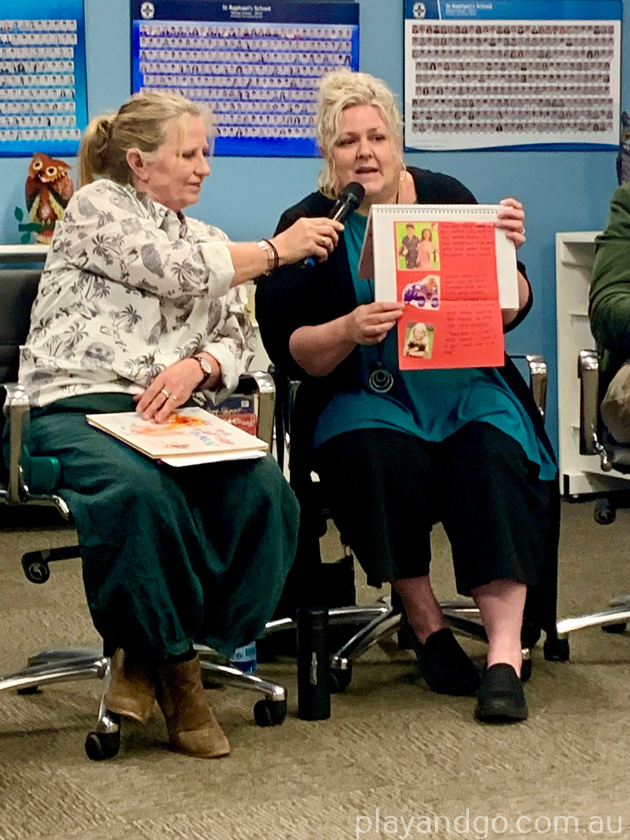
Children’s author Tania Ingram at the literacy panel discussion, held at St Raphael’s School in Parkside
Demonstrate a love for reading: If you want your child to love reading, show them you love and enjoy reading. Borrow books for yourself on your library visits, relax together reading your books and go to children’s author visits together.
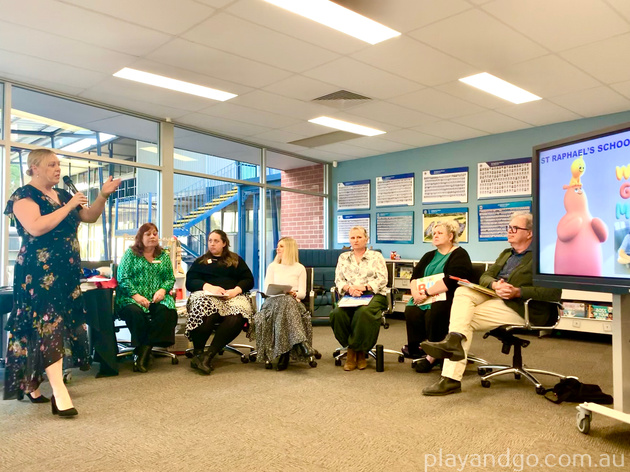
St Raphael’s School principal Emma Fowler (far left) with the panel (left to right): Karyn Stephens and Caitlin Hadrill from Unley Library, Bec Hughes from Raising Literacy Australia, author illustrator Mandy Foot, children’s author Tania Ingram, author illustrator Andrew Joyner.
GROWING READERS AT ST RAPHAELS
St Raphael’s principal Emma Fowler said the school has a big focus on fostering a love of reading, as just because a child CAN read, it doesn’t mean they will WANT to read.
“If we put in the hard work now, even if that means reading their favourite book every single night, we are going to see that paid back in spades when they’re older,” Ms Fowler said.
Through a wide range of initiatives both within and outside the classroom, the school – together with their families – are igniting a passion for literacy in St Raphael’s children and raising a generation of readers.
CLICK HERE TO FIND OUT MORE
For more information and all enquiries please visit the St Raphael’s School website
At Play & Go Adelaide we make every effort to provide accurate information to the best of our knowledge at the time of publication. We recommend confirming times, dates and details directly before making any plans as details may be subject to change.
Image Source: Play & Go Adelaide
SUBSCRIBE
Want to get all the latest events and activities straight to your inbox?
Subscribe to our weekly email newsletter below to keep up to date with our latest posts and find out all the best events & activities for Adelaide families. Newsletters are only sent once a week, and you may sometimes get a special offer exclusively for our subscribers only!




